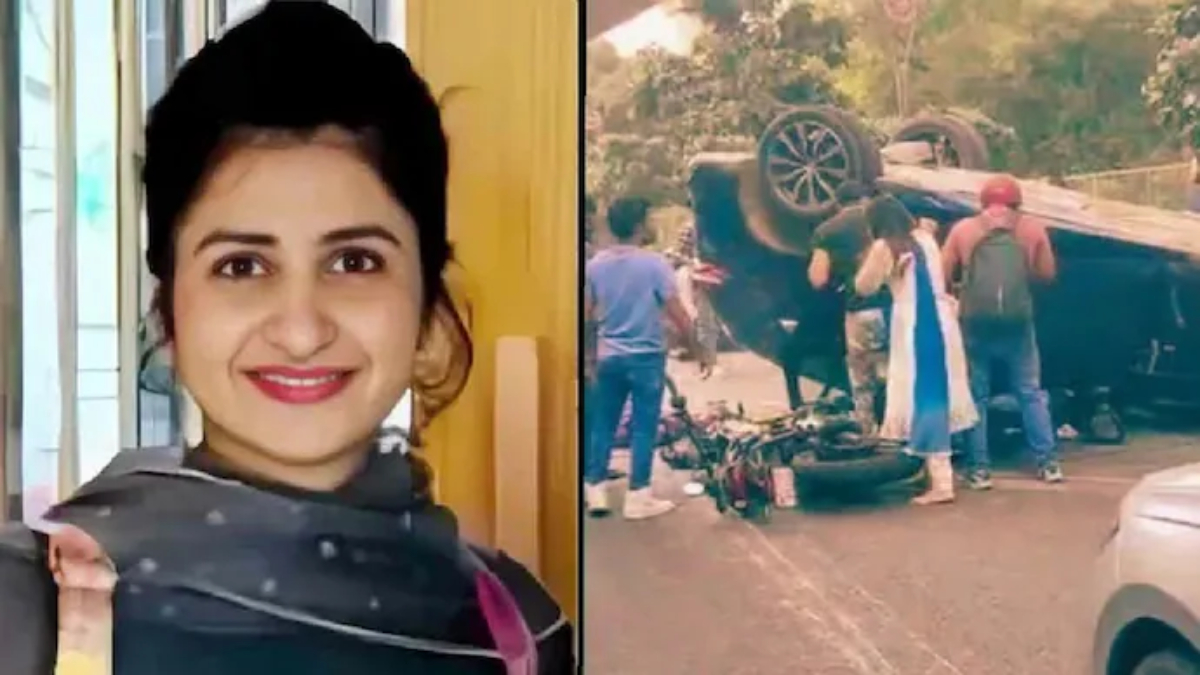Now Reading: Rajkot BMW Horror: The Tragic Loss and the Quest for Justice
-
01
Rajkot BMW Horror: The Tragic Loss and the Quest for Justice
Rajkot BMW Horror: The Tragic Loss and the Quest for Justice

New Delhi, November 10, 2025: The city of Rajkot, Gujarat, is reeling from a tragic and disturbing road accident that has once again cast a harsh light on issues of reckless driving, privilege, and the fight for equitable justice. The incident, now widely referred to as the ‘Rajkot BMW Horror,’ saw a 20-year-old biker killed instantly after being struck by a high-speed luxury car allegedly driven by a young man from an affluent background, Atman Patel.
The Night of the Crash
The horrific crash occurred late in the night, around 2:30 AM, near the Crystal Chowk area on Kalavad Road. Eyewitness accounts and chilling CCTV footage reportedly confirm that a BMW car was being driven at a dangerous, excessive speed before it violently collided with the two-wheeler ridden by the young victim, identified as Abhishek. The sheer force of the impact resulted in Abhishek’s immediate death, leaving behind a devastated family and a community demanding answers.
The driver of the luxury vehicle, Atman Patel, reportedly surrendered to the local police following the incident. Police immediately registered a case against him, and the body of the deceased was sent for post-mortem. Crucially, as the investigation began, police officials confirmed that blood samples were taken from the driver to determine if he was under the influence of alcohol or other substances, with initial reports pointing to severe overspeeding as the primary factor in the crash.
The Looming Question: Will Privilege Overshadow Justice?
The case has immediately captured public attention, not just for the shocking loss of life, but because of the driver’s background. In India, accidents involving the children of wealthy or influential families often spark intense debate about whether their status allows them to evade the full consequence of their actions—a phenomenon sometimes described as ‘money power’ interfering with the judicial process.
This is the central, agonizing question dominating the public discourse in Rajkot: Will Atman Patel, the alleged rich driver, be shielded by his family’s influence, or will the legal system rise to the occasion and ensure justice prevails for Abhishek’s grieving family?
The immediate actions of the police—registering a case and collecting crucial forensic evidence like blood samples—are vital first steps. However, the subsequent investigation, the nature of the charges filed, and the eventual trial will be the true test of the system’s integrity. The public is watching closely, keenly aware that similar cases in the past have seen delays, dilution of charges, or surprisingly lenient outcomes.
A Community’s Outrage and a City’s Warning
This tragedy is sadly not an isolated event. It follows closely on the heels of other serious road fatalities in Rajkot, including a recent case where a mother and daughter were hit by a speeding vehicle, resulting in the young girl’s death. This pattern of reckless driving, especially with high-end vehicles, has amplified public outrage. Locals are vehemently demanding stricter enforcement of traffic laws and severe, deterrent punishments for those who treat public roads as personal racetracks.
The ‘Rajkot BMW Horror’ has transcended a simple traffic accident; it has become a flashpoint for social and legal accountability. For Abhishek’s family, the battle is for the memory of their son; for the citizens of Rajkot, the fight is for a clear message: that no individual is above the law, regardless of their financial standing. The coming weeks and months, as the legal process unfolds, will determine if faith in the impartial nature of Indian justice is restored.










